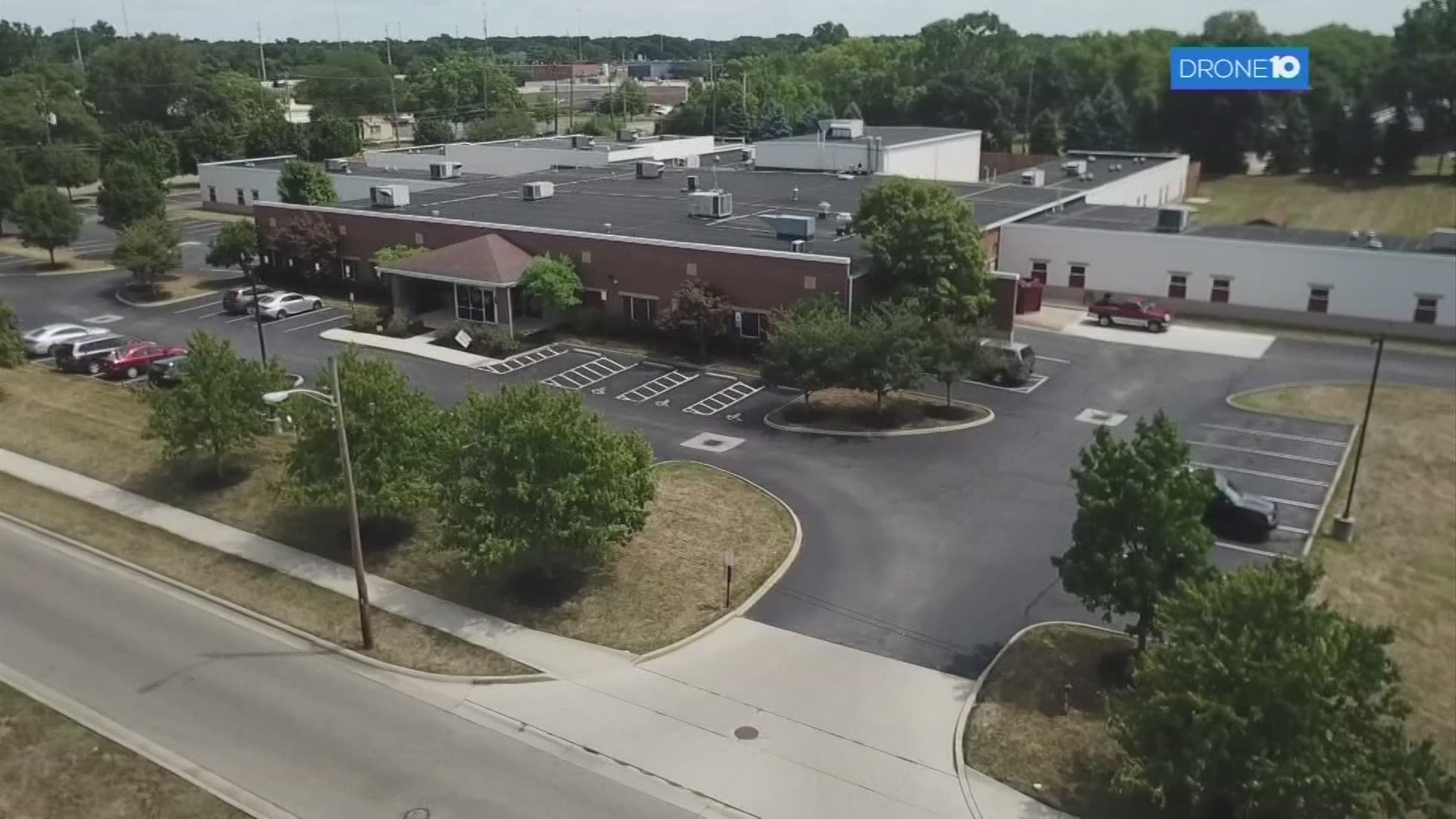COLUMBUS, Ohio — Ohio announced in recent days that it was forcing Sequel Pomegranate to relinquish its license to operate its residential treatment facility.
The move came 18 months after 10 Investigates first exposed a pattern of violence and abuse that left children ages 12 to 17 injured while in the facility’s care.
Now more states like Michigan, Oregon, Washington and California have either shuttered facilities tied to the parent company, Sequel Youth and Family Services, or are ending their business relationships in wake of concern about improper restraints, violence – and in some cases like Alabama – poor living conditions.
Youth advocates there filed a scathing report earlier this year on a Sequel facility called Courtland – alleging that during on-site visits they found blood on the wall and feces on the floor of a room.
State regulatory agencies in Alabama said that admissions were suspended in July but were reinstated a month later in August after a state spokesman said corrections were made.
In Michigan, two facilities were shuttered earlier this year following the death of 16-year old Cornelius Fredericks, who died days after surveillance video showed him being placed in an allegedly improper restraint hold.
A lawsuit has been filed in wake of the incident and criminal cases are pending against some of the caretakers.
Sequel Youth and Family Services provided the staff to that facility, Lakeside Academy, which is now permanently closed.
A spokesman for the Michigan Department of Health and Human Services said “I can say that this administration will no longer be working with any Sequel facilities. I can’t speak for any future administrations.”
Oregon State Senator Sara Gelser has worked over the past year to prevent Oregon children from being sent to out-of-state facilities operated by Sequel Youth and Family Services.
Gelser has toured Sequel properties in Illinois and Lakeside in Michigan where she says she expressed concern to Sequel leadership about improper restraints in the months prior to Fredericks’ death.
Gelser has also been critical of Sequel’s for-profit behavioral health model, which she said:
“This business model is dangerous for kids. It is also very dangerous of the workers that come in. The pay is very low,” Gelser said.
During a 2015 lecture at the University of Baltimore’s business school, Jay Ripley, the co-founder of Sequel Youth and Family Services, discussed how his behavioral health model became profitable.
Prior to recent closures and license removals like what happened at Sequel Pomegranate in Columbus, Sequel Youth and Family Services operated 29 residential treatment facilities in 15 states.
During his speech, Ripley spoke of how the demand for behavioral treatment programs was high and that “if we can execute great programs you are going to have more clients than you can possibly think of. It’s really like drinking from a fire hose.”
Ripley said that in 2015 Sequel Youth and Family Services revenue was more than $200 million and that its profits were between $30 to $32 million. He mentioned how “you can make money in this business if you control staffing.”
But 10 Investigates has found that inadequate staffing has been part of the criticism of what former residents and staffers alike say led to problems at places like Sequel Pomegranate where children were exposed to violence – or in some cases – abuse.
In 2019, 10 Investigates reported on a lawsuit filed by a teenage boy who claimed while at Sequel Pomegranate he had been held down by other teens and “viciously assaulted, battered and raped.”
The allegation of sexual abuse was later substantiated by Franklin County Children Services.
Sequel Pomegranate settled that lawsuit that alleged at the time of “multiple sexual attacks on the victim…the one Pomegranate staffer working that night was occupied by a personal cell phone.”
Our investigation also found repeated incidents of staffers and teens being hurt through acts of violence.
We took our concerns in 2019 to Franklin County Children Services, asking them if they planned to sever ties with the company. A spokeswoman told us at the time: “these incidents are troubling and we are concerned.”
FCCS, which supplied Sequel Pomegranate with most of its children in Columbus, eventually canceled its contract with Sequel earlier this year.
But problems persisted.
10 Investigates obtained copies of police body camera footage of Pomegranate’s CEO talking to officers from the Columbus Division of Police, who had been called to the facility more than 20 times this year for issues like riots and staffers who were hurt from allegedly unruly teens inside.
“Here’s the deal: we’ve got four or five girls that are hell on wheels. And they are threatening staff, they’re fashioning weapons, they’re destroying property. We aren’t equipped to handle that. We never have been,” CEO Jeff Rice can be heard telling the officers.
One Columbus police officer then replied: “OK, so I’m not the one that takes them in.”
Last Friday, the Ohio Department of Mental Health and Addiction Services announced it had struck a settlement agreement -- forcing Sequel Pomegranate to relinquish its license within five days.
Sequel Pomegranate can reapply in 10 months, but the acute psychiatric facility – already under its own settlement agreement after a child was punched and kicked by a nurse last fall – would have to be in good standing.
Over the past several days, 10 Investigates has reached out repeatedly to Sequel Youth and Family Services. Our phone calls and repeated emails have not been returned.
Attempts to reach Ripley were also unsuccessful.
10 Investigates also reached out to Altamont, a California private equity firm that has invested in the company. We have not yet heard back.

